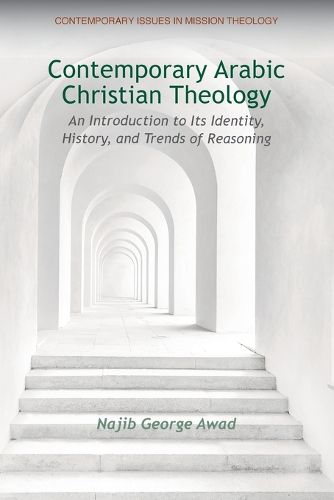Readings Newsletter
Become a Readings Member to make your shopping experience even easier.
Sign in or sign up for free!
You’re not far away from qualifying for FREE standard shipping within Australia
You’ve qualified for FREE standard shipping within Australia
The cart is loading…






This long-awaited monograph looks at the trends of theological reasoning and discourses which the Arab-speaking Christians develop in their contemporary living context. Some of the questions the book tackles are: How do the present Arabophone Christians relate their Christianity to their living indigenous context in the Middle East? How do they perceive their Christian identity in relation to their Muslim-majority context, and how do they perceive who they are in the light of the socio-political, cultural, interreligious, and contextual challenges and components of the broader Muslim-majority context they exist in? How are the Arabophone Christians' theological discourses similar to and different from other Christian religious and theological discourses at other parts of the world? What makes these Christian theological discourses 'Arab' and 'Middle Eastern' in their content, methodologies, perspectives, interpretations, and syntheses? What are the determining characteristics of these Arabophones' theological hermeneutics of life-conditions and challenges, and what are these characteristics' positive and negative ramifications and implications?
$9.00 standard shipping within Australia
FREE standard shipping within Australia for orders over $100.00
Express & International shipping calculated at checkout
This long-awaited monograph looks at the trends of theological reasoning and discourses which the Arab-speaking Christians develop in their contemporary living context. Some of the questions the book tackles are: How do the present Arabophone Christians relate their Christianity to their living indigenous context in the Middle East? How do they perceive their Christian identity in relation to their Muslim-majority context, and how do they perceive who they are in the light of the socio-political, cultural, interreligious, and contextual challenges and components of the broader Muslim-majority context they exist in? How are the Arabophone Christians' theological discourses similar to and different from other Christian religious and theological discourses at other parts of the world? What makes these Christian theological discourses 'Arab' and 'Middle Eastern' in their content, methodologies, perspectives, interpretations, and syntheses? What are the determining characteristics of these Arabophones' theological hermeneutics of life-conditions and challenges, and what are these characteristics' positive and negative ramifications and implications?